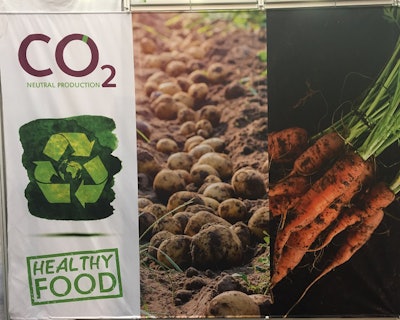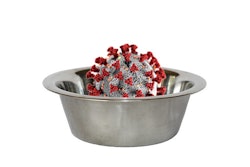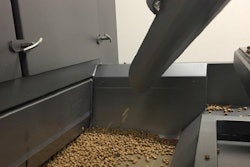
Consumers have been increasingly seeking sustainable products in all categories, including pet food, over recent years. That’s especially true for younger generations such as millennials, now the largest group of pet owners.
A global consumer confidence survey conducted by Nielsen and the Conference Board in 2017 showed that 83% of millennials said it was extremely or very important to them that companies implement programs to improve the environment, and 75% said they definitely or probably would change their purchase or consumption habits to reduce their impact on the environment.
Innova Market Research surveys conducted in 2019 showed that on average, 87% of consumers from countries around the world expected companies to invest in sustainability.
Specific to pet food, in a 2019 survey from Mintel and Tree Top Ingredients, 28% of respondents aged 18 to 34 said they’re interested in seeing more sustainably sourced pet food, with 25% saying they’re also interested in pet food with plant-based protein. For sustainably sourced pet food, 24% of respondents aged 35-54 expressed interest, compared to only 15% for people 55 and older, while 18% of 35-54-year-olds and 10% of 55 and older expressed interest in plant-based proteins in pet food.
What do consumers think about sustainability now?
The pet food data represent small numbers – and perhaps more importantly, they were collected pre-pandemic, as were the Innova and Nielsen/Conference Board data. Do they mean anything now?
While more recent pet food-specific numbers are limited, general consumer data about sustainability are available. For example, consulting firm Kearney conducted a survey of 1,000 U.S. consumers earlier this year, first on March 6 but then repeated on April 10, after COVID-19 cases had begun to spread throughout the country. The results, reported by Supply & Demand Chain Executive, showed that for 48% of consumers, the pandemic had made them more concerned about the environment, with 55% saying their experiences during this time made them more likely to buy environmentally friendly products.
In addition, 78% of respondents said they believe companies could be doing more to support decisions aimed at improving the environment, and 65% “expect companies to clearly explain environmental benefits on their product labels or websites,” the report said. “Since 2019, 11% more consumers reported shifting their purchases of core products based on environmental claims.”
Another survey conducted by Accenture at about the same time as the second Kearney one, between April 2 and 6, found that 45% of consumers are making more sustainable choices when shopping and expect to continue doing so. Relatedly, 64% of these survey respondents said they’re focusing more on limiting food waste now and also are likely to continue that behavior. The results were reported by MarTechSeries.
Sustainability may tie to natural, organic foods
The food waste focus makes sense, as earlier in the pandemic, hoarding made some products scarce and may have caused some consumers to be more intentional about using what they had on hand. As for the COVID-19 crisis driving more people to sustainability, that may be a mixed bag.
Recent Nielsen data showed that consumer values are shifting. For categories like home-care products, label claims about naturalness, sustainability, quality and brand are less relevant, according to a Nielsen article published on May 22, 2020. Yet when it comes to human food, the data shows consumers are prioritizing foods and beverages with benefits such as health defense and immunity, understandably, but also natural products and quality.
Closely tied to natural food, organic human food may provide additional insights. Organic food companies in the European Union believe the category can help fill consumer demand for safer products, according to an article by Missy Green on FoodIngredientsFirst.com. “Consumers are paying more and more attention to food safety, notably in the context of a global pandemic,” said Kevin Bangratz, marketing researcher for Prova, quoted by Green. “They link up healthiness with naturality. Thus, they perceive organic-certified products as safer, because the ingredients they contain are more natural.”
“When consumers hear ‘organic,’ they assume the product is healthy, sustainable and wholesome,” echoed Joe Katterfield, sales development manager, health & performance, for Arla Foods Ingredients.
Natural or organic food doesn’t directly equate with sustainability, but they are connected, at least for some consumers – all linked to the natural world, which may be more top of mind when a pandemic that likely arose from interaction with wild creatures like bats, possibly even pangolins, is wreaking havoc on our planet’s human inhabitants.
The natural and organic pet food connection
In the Mintel/Tree Top survey, natural and organic showed up as important product features for some pet owners – notably, millennials again. Namely, 25% of respondents in the 18-34 age group said organic ingredients are a significant factor when making pet food purchasing decisions (compared to only 9% of pet owners 55 and older).
The survey also included recent data from the height of the pandemic, May 2020, indicating 41% of pet owners aged 18-34 rate “all-natural” pet food as an important purchase factor, over 29% for those 55 and older. Drilling down to specific categories, the survey also showed that 51% of both the 18-34 and 35-54 age groups, as well as 36% of the 55 and older group, are interested in seeing more natural meat pet treats.
The takeaway? While the COVID-19 pandemic clearly has affected many, if not most, aspects of consumer shopping behavior, for pet owners, features like natural ingredients and issues like sustainability still matter – perhaps even more so now.
View our continuing coverage of the coronavirus/COVID-19 pandemic.
















